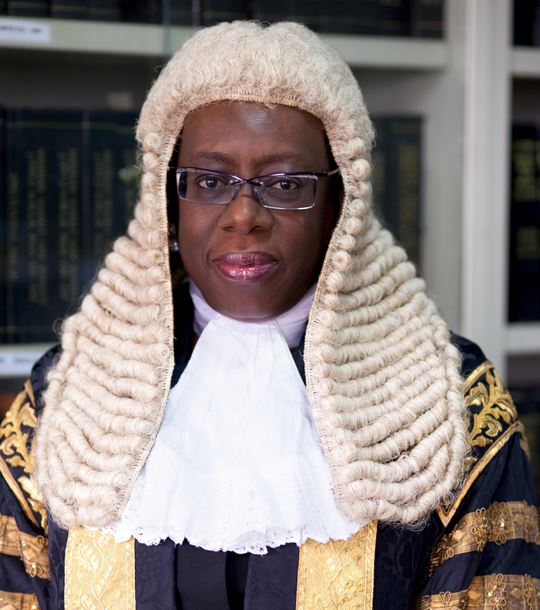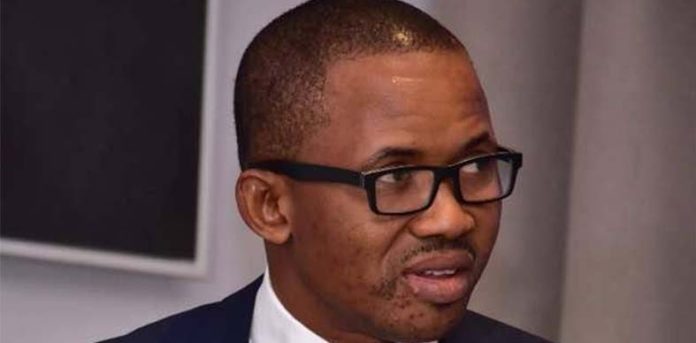Ondo State Attorney General and Commissioner for Justice, Kayode Ajulo (SAN), offers insight into the current state of judiciary under Justice Olukayode Ariwoola. In this interview, he also speaks about what Nigerians should expect under the lordship of the incoming Chief Justice of Nigeria (CJN), Justice Kudirat Kekere-Ekun among other things.
Q: Justice Ariwoola will bow out of the bench in a week’s time. Justice Kekere- Ekun will take over. How will you score the outgoing CJN?
A: Justice Olukayode Ariwoola, has an eventful tenure as Chief Justice of Nigeria. He assumed the role in 2022 after the sudden resignation of the previous CJN, Justice Tanko Muhammad. During his time as CJN, Justice Ariwoola presided over several high-profile cases and sought to address some of the challenges facing the Nigerian judiciary.
On the positive side, Justice Ariwoola is credited with efforts to improve the efficiency and transparency of court processes. He championed the increased use of technology and Human Resources in court proceedings. During his tenure, the apex court had its full constitutional number of 21 Justices and he pushed for faster resolution of cases. The judiciary also saw improved conditions for court officials under his leadership. During Justice Ariwoola’s tenure, the Supreme Court broadly demonstrated her independence and pro-people and progressive tendencies, as I shall never be quick to forget the President Vs National Assembly matter that I defended successfully before the full panel of the court, CBN’s Currencies Change matter, Local Government Autonomy and host of other cases that accentuated the very best of the Court.
However, Justice Ariwoola also faced criticisms on certain fronts. There were concerns raised about allegations of bias and undue influence in some instances which remain unproven. The judiciary continued to grapple with funding shortfalls and infrastructure challenges during his tenure. We should not also forget the image of the Judiciary today which begs for improvement.
Overall, Baba made many positive strides, but also fell short in fully addressing the very deep-seated problems facing Nigeria’s justice system. The incoming CJN, Justice Kekere-Ekun, will have her work cut out for her in continuing the reform efforts.

Q: What do you know about the incoming CJN and what is your advice for her, going forward?
A: My noble Lord, Justice Kudirat Kekere-Ekun, is a highly respected jurist with over 30 years of experience in the Nigerian judiciary. She has served as a Magistrate, then rose to become a Judge, and finally a Justice of the Supreme Court since 2013. She is known for her legal acumen, fairness, forthrightness, and fortitude. I have had several opportunities to appear before her, and I see her as a no-nonsense jurist.
Justice Kekere-Ekun has a reputation for being tough but impartial, with a steadfast commitment to upholding the rule of law.
This will be instrumental in restoring public confidence in the judiciary.
In all sincerity, I consider myself too humble a minion to advise the esteemed Justice Kudirat Motonmori Kekere-Ekun, as she takes on the role of CJN.
However, I will humbly beseech her Grace to consider the following: To prioritize a holistic agenda of judicial reforms, addressing the systemic challenges of inadequate funding, infrastructure deficits, and case backlogs.
To steadfastly work towards enhancing public trust and confidence in the judiciary through unwavering transparency, unimpeachable accountability, and the most steadfast fairness in all judicial proceedings.
To foster a spirit of collaborative synergy between the judiciary, the legislature, and the executive, thereby resolving any tensions and safeguarding the independence of the courts.
To invest diligently in the capacity-building of judges and court staff, while leveraging technological innovations to improve efficiency and widen access to justice.
To champion initiatives that shall promote the noble ideals of gender equality and diversity within the hallowed halls of the judiciary, for this shall undoubtedly strengthen the institution.
It is my fervent prayer that, with her Grace, wealth of experience and her demonstrated commitment to the rule of law, she shall steer the Nigerian judiciary towards a future of unparalleled excellence, despite the significant challenges that lie ahead. Her steady and discerning leadership shall undoubtedly make a most profound difference.
Q: Before the commencement of the last #EndBadGovernance protest, the government made spirited efforts to abort it. How does this align with people’s fundamental rights to freedom of expression, association and movement*?
A: Away with all the sentiments expressed before during and after the protest, the basic issues at play which remains uncontroverted in any quarters is the government’s efforts to strike a balance between maintenance of public order and ensure the citizens’ rights as guaranteed by our laws in Nigeria and I didn’t see it from the perspective of the government trying to abort the protest.
Nigeria’s democratic growth, I must stress, depends on balancing public order and citizens’ rights and it is government’s responsibility to maintain order while respecting people’s fundamental rights. People’s democratic right, I won’t say is sacrosanct, but constitutional and in this context of our discussion, freedom of expression is essential for democratic participation and accountability. Freedom of association is crucial for collective action and advocacy. Freedom of movement is necessary for personal and economic development and in doing this and permitting the protest, we must learn from history. As an undergraduate schooling in Nigeria, I participated in countless protests that left some dead, some maimed and arrested, the last one, EndSARS, is still fresh as it got to a point that the protest turned into something else which borders on issues of public order. And no responsible government will go to sleep particularly when the organisers of the protest were gracious enough to give adequate notices.
Q: You will recall that some lawyers on behalf of government also went to court to obtain injunction to restrict movement of protesters to a certain location. Tongues wagged. In your view, what is the implication of such court order on the nation’s fledgling democracy?
A: This is a complex issue that touches on the balance between the right to peaceful assembly and the government’s responsibility to maintain public order.
On one hand, the right to protest is a fundamental democratic freedom that should be protected. Peaceful protests play a crucial role in giving voice to citizens and holding the government accountable. Restricting the movement of protesters should be seen as exercising the responsibility placed on government to maintain order and safeguard lives and property. The government also has a duty to ensure public safety and prevent potential violence or disruptions to daily life. Mass protests in this side of our world lead to unrest, property damage, or clashes with security forces. In this context, a court order restricting protest locations may be intended to facilitate the exercise of the right to protest while managing potential public order issues.
Ultimately, I believe this is a delicate balance that requires careful consideration of the specific circumstances. The implications for democracy depend greatly on how the restrictions are implemented and whether they are reasonable and proportionate to the situation. Overly broad or heavy-handed limitations could indeed be problematic for democratic freedoms.
And mind you, we all have some unique way of doing things, like in Ondo State, Governor Aiyedatiwa’s approach was to engage constructively with the people to find mutually agreeable ways while maintaining public safety. Transparent communication, good-faith negotiation, and a commitment to protecting fundamental rights, are crucial factors here.
Q: What is your advice for protesters in future on how to coordinate protest without it being hijacked by hoodlums?
A: It’s everyone’s fundamental right to peacefully protest without affecting others’ fundamental rights. In future, it is essential and very imperative to prioritise careful planning, effective communication, and a strong commitment to peaceful, disciplined protest, these particularly require that law enforcement agencies, media and the authorities are involved.
It is not out of place to first engage government to seek any other alternative to the protest. For example, Governor Lucky Aiyedatiwa of Ondo State engaged with everyone, listened to them and proffered solutions to their complaints and in addition, as Attorney-General of Ondo State, a 24-hour Intervention Unit, Citizens Rights and Advisory Bureau, CRAB, was created wherein people of the state come with their complaints and enquiries through our dedicated phone lines and other electronic devices to get across to the governor and his aides. By taking these steps, protesters can work to prevent their message from being overshadowed or hijacked by outside agitators.
Q: It does appear many Nigerians were disappointed with Tinubu’s speech after the #EndBadGovernance protest, for not addressing the issues raised by the protesters. How will you react to this?
A: Presidential speeches and the public’s reactions to them can be complex topics, involving factors like messaging, leadership, and the broader socio-political context.
How President Tinubu’s speech is viewed is subjective depending on who is reviewing it. The essence of the speech is the Presidential reaction to the protest and my take home first is that the President acknowledged the protest and said his administration was ready to listen to, and address the concerns of the protesters. Do not forget that the President humbly made it bold to claim that he has heard their calls “loud and clear” and he promised to fix all the concerns raised. In my opinion, the message gives hope, quite reflective, while trying to sooth the nerves of the aggrieved Nigerians. And, above all, did the speech serve its purpose? I will say yes as the President connected with the people, gave clear directives, and no one is on the street as we speak.


